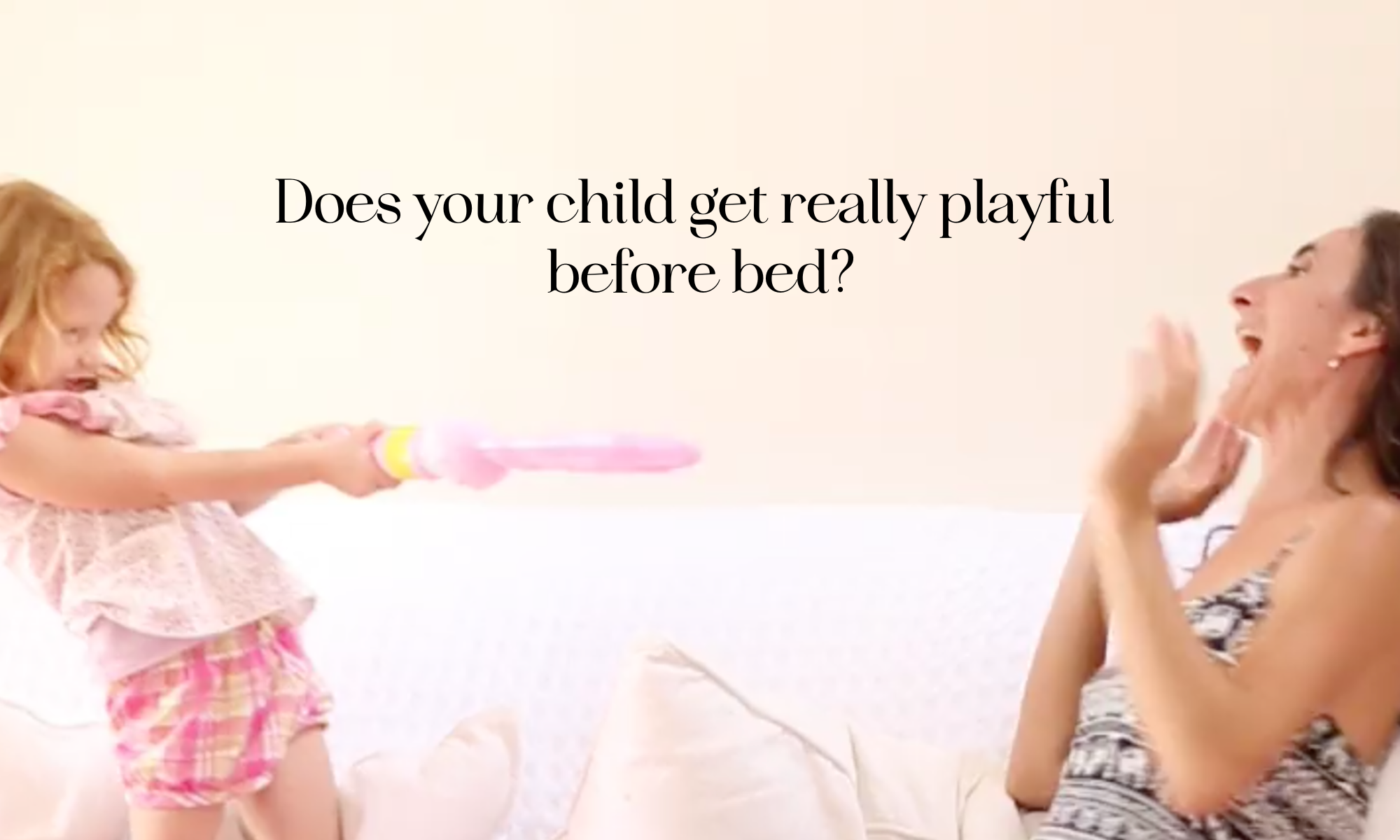Does your child get really playful before bed?
Have you found yourself trying to calm them down, settle them, ‘make them’ relaxed?
And do you find that perhaps they’re wriggling around in bed, apparently ‘fighting sleep,’ asking for loads of things, being restless at night, perhaps even waking up in the night and waking up early?
Would you believe me if I said that children have an innate relaxation response?
What about if I told you that they know how to feel relaxed enough to sleep peacefully, and one of those ways is with play?
This really turns around what we are often taught as parents, doesn’t it?
Yes, rather than trying to get a child to calm down and stop playing, Aware Parenting invites us to trust them, and to join in with their play!
In Aware Parenting, there are particular forms of play called attachment play, and they maximise the power of play to create relaxation.
So, if your child is running around the house, and you join in, saying, “you’re not going to chase me, are you?” with a big smile, and they chase you, and you keep on pretending to be caught and being mock-surprised, “How ON EARTH did you catch me again? You don’t do that again, will you?”
This is a form of attachment play called power-reversal games, and it helps children both release accumulated feelings of powerlessness and feel a sense of power, which is a core part of moving out of the fight/flight response and into a sense of relaxation.
When children are laughing, as long as they’re not being tickled, they are releasing stress and tension from their bodies. The combination of play and laughter helps them feel more relaxed.
This is a far more effective and more powerful way of helping them feel relaxed enough to go to sleep than if we try to distract them or ‘calm them down.’
Why is that? Because it actually releases stress and tension from their bodies, rather than distracting them from it.
Other games that might be helpful before sleep are separation games. If your child has experienced traumatic separation from you, including after birth, those feelings might bubble up before sleep, which is a kind of separation even if you’re co-sleeping.
Separation games include games like peek-a-boo, which can be adapted for children, and hide and seek. Finding you or being found by you can bring about healing of the past separation. And again, if there’s any laughter, that will be them releasing feelings such as fear and powerlessness. Laughter is such a powerful healing and relaxation process.
But what about if you join in and play with your child, and they want to play and play, even though they are clearly tired (and perhaps you are too!)
Or what about if they start getting rough with you or a sibling or family pet?
And what can you do if after all the lovely play, they bump into you and start crying big and loud?
With the ongoing playing, you can offer them a loving limit, which is where you say no to the behaviour and yes to the feelings causing the behaviour. If your child is tired but not relaxed enough to sleep still after the playing, it suggests that there might be some deeper feelings sitting at the surface. So you might say, “I’m not willing to play any more sweetheart,” and then listen lovingly to any feelings they have. Those feelings were probably preventing them from feeling relaxed enough to sleep.
With the getting rough, you can again offer a loving limit. Whilst doing the minimum possible to stop the roughness, eg. reaching out and holding their hand, you might say, “I’m not willing for you to hit me, sweetheart, and I’m right here and I’m listening.” And then expect tears or tantrums to follow, as they let out the feelings that were causing the roughness.
If they start crying anyway, you can also listen to their feelings, offering them empathy and being present. “I’m here and I’m listening, sweetheart.”
Laughter and play are part of a child’s natural relaxation response, and so are crying and raging with vigorous movement, as long as we are there with them.
When children get to laugh and play, and/or cry and rage with our loving support, they feel naturally more relaxed, which means that they are likely to be able to go to sleep more easily, be more calm in their sleep, and sleep until they’ve had enough sleep.
If you want to find out more about Aware Parenting and sleep, I have an online workshop available, and a course coming soon. I’ve also written a book which is with my editor now!
I’m so willing for more fun and more sleep for you and your child/ren!
Big love
xoxox
